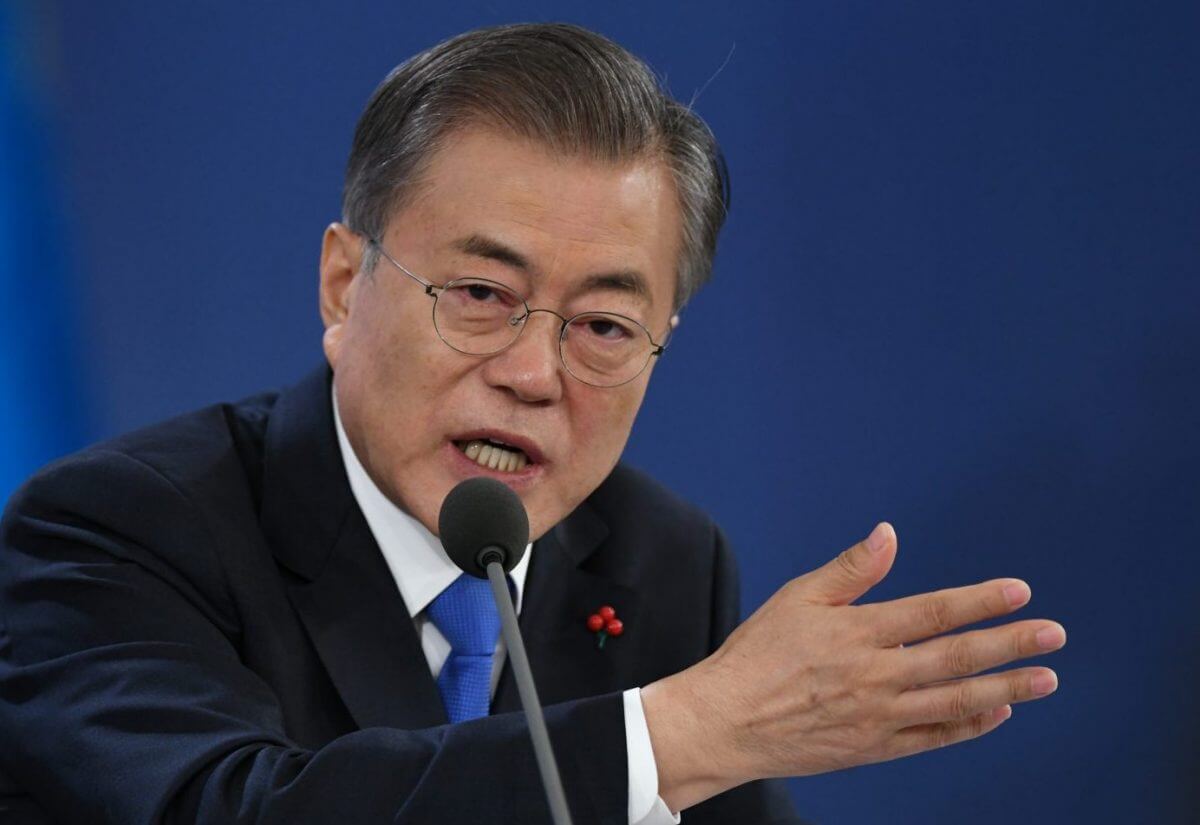On Monday, South Korean President Moon Jae-in said that his government was willing to talk to Japan “anytime” to work towards stronger future cooperation and not allow historic issues to hamper the potential of bilateral and multilateral cooperation.
Speaking from Tapgol Park in Seoul on the 75th anniversary of Japan’s World War II surrender on March 1, also known as the Independence Movement Day, Moon said in a televised address:“The South Korean government is always ready to sit down and have talks with the Japanese government. I am confident that... we will also be able to wisely resolve issues of the past.” Referring to the issue of the Japanese “comfort women” (a euphemism for those forced to work in Japanese military brothels during World War II), which has strained relations between the two for decades, Moon further added that both governments had been “holding discussions” on an “amicable solution that the victims can agree on...The door for negotiation is still wide open. Our government is always ready to sit down (to talks) with the Japanese government.”
Moon said that “the only obstacle” in the path of this is that “sometimes, issues of the past cannot be separated from those of the future but are intermingled with each other.” He asserted that this mindset has “impeded forward-looking development” and said, “We should learn a lesson by squarely facing the past...However, efforts for South Korea-Japan cooperation and forward-looking development will not stop either.” Moon also added that Seoul will “cooperate for the success” of the already delayed Tokyo Olympics, which are scheduled to take place later this year.
In recent times, the relationship between the two has been challenged by several diplomatic tiffs. In February, a white paper was published by South Korea’s Defence Ministry that “downgraded” Japan’s status from “partner” to “neighbour”. According to South Korea, this change in wording was considered “reasonable” because Japan had removed South Korea from its list of preferential export nations in 2019. The new white paper also blamed Japan for “stalemating ties” with South Korea by making “unilateral announcements that misrepresented facts”. This is a reference to Japan’s disputed claim to the South Korea-controlled Dokdo Islands (called Takeshima Islands by Japan) in the Sea of Japan and a military encounter between a Japanese surveillance plane and a South Korean vessel in December 2018, when Japan accused South Korea of violating the Code for Unplanned Encounters at Sea by aiming the vessel’s fire-control radar at a plane.
Further, in 2018, South Korea’s Supreme Court ordered Japanese companies Mitsubishi and Nippon to “compensate South Koreans forced to work in its factories” during Japanese colonial rule. Following this, last August, a South Korean court began proceedings to liquidate assets seized from Japan’s Nippon Steel Corp, which had refused to comply with a Supreme Court decision to award $8,400 each to four former World War II workers. In fact, South Korean victims of wartime labour conscription sued Japanese companies in the 1990s. However, Japanese courts ruled in favour of the companies, leading the victims to take their case to South Korean courts instead.
Moreover, a pair of statues depicting a man kneeling before “comfort women” furthered diplomatic tensions between Seoul and Tokyo last year. Japan questioned if “the male figure represents the Japanese Prime Minister”.
Prior to this, in 2015, the two countries sought to settle the dispute over sexual slavery, announcing a “final and irreversible” agreement. As part of the deal, then Prime Minister Shinzo Abe issued an apology and released $8 million for a compensation fund. However, nany South Koreans did not accept the agreement and the victims even refused the money in protest. Incumbent South Korean President Moon Jae-in shut down the fund in 2018, reigniting tensions once more.
The most recent remarks by the South Korean president on the significant historic day hint that there is a glimmer of hope for future reconciliation.
South Korea Says It Is Ready to Talk to Japan “Anytime” About Thorny Bilateral Disputes
South Korean President Moon Jae-in said that he is ready “to have a dialogue” with Japan to work towards stronger future cooperation by keeping historic issues aside.
March 1, 2021

SOURCE: AFP
